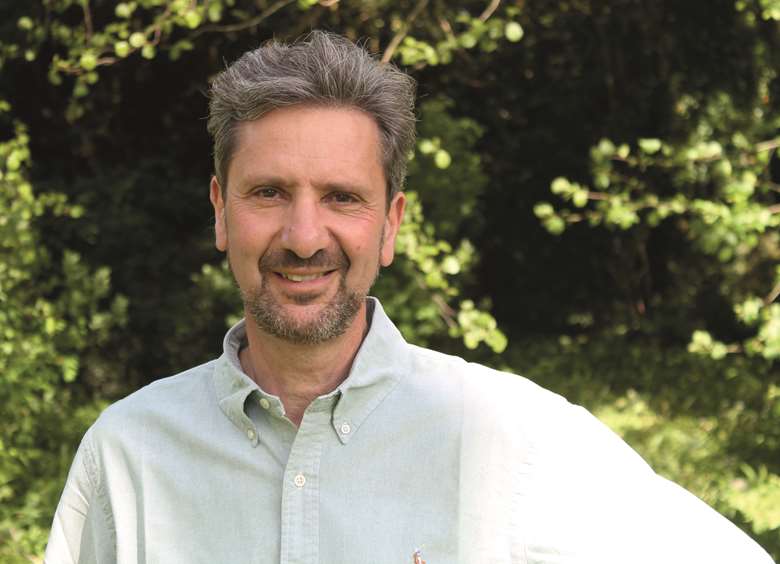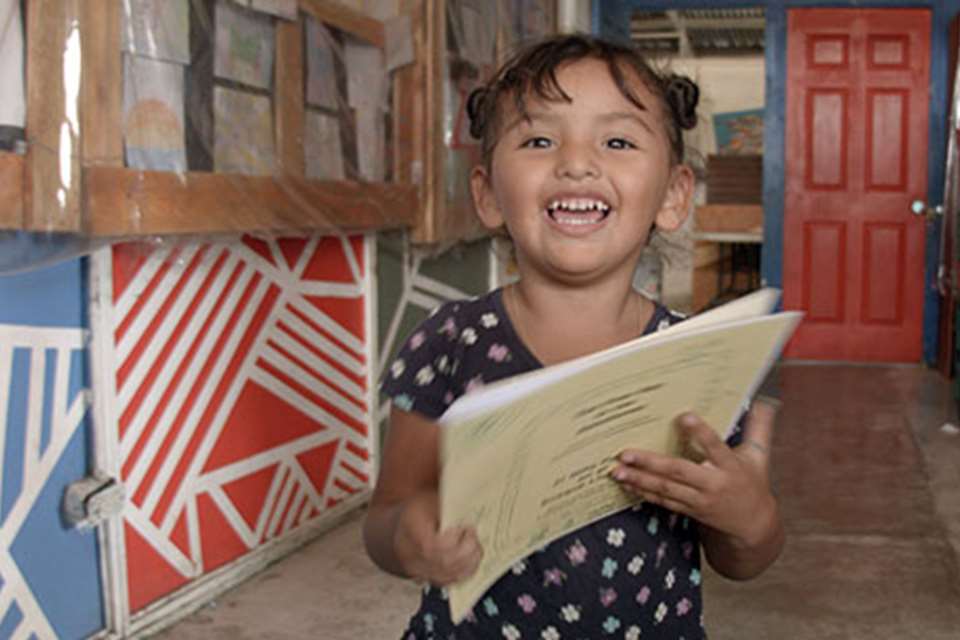Interview - James Alexandroff, founder of Perivoli Schools Trust
James Alexandroff, founder of Perivoli Schools Trust
Tuesday, February 1, 2022
James is the founder of Perivoli Schools Trust, a UK registered charity that funds a nursery school teacher training programme in countries across Sub-Saharan Africa. In total, the trust has trained over 10,000 teachers since 2012, with a target of reaching 200,000 in the next ten years.

CAN YOU DESCRIBE WHAT YOU DO?
The simplest way to describe the programme is that it’s a sort of ‘Blue Peteron steroids’. Essentially, trainers show the teachers how to make educational activities out of recyclable materials and how to organise their classrooms for the benefit of the children.
The model is currently active in Namibia, Malawi and Zambia and is launching in Uganda and Botswana later this year. Tanzania, Burundi, Zimbabwe, Angola and Mozambique are all countries in our sights for the coming years.
WHY IS EDUCATION SUCH A POWERFUL TOOL IN DRIVING ECONOMIC, SOCIAL AND DEMOGRAPHIC CHANGE?
Population numbers in many African countries are doubling around every eight years, with the continent being forecast to account for over 40 per cent of the global population by the end of the decade.
Statistics show that a girl in Africa who can read has two children, whereas a girl who can’t has five. It is clear that education must play a big part in addressing the demographic burden on the continent, but its power goes beyond this remit.
By focusing on nursery school children, we can make a real difference, encouraging them to be creative from an early age, reducing dropout rates in primary and secondary school and ultimately giving them to tools for self-empowerment.
Poverty can be considered both the cause and outcome of a lack of education. A great effort is needed to break this cycle, and nursery school education is definitely a necessary step in this process.
WHY IS PRE-SCHOOL AND EARLY YEARS EDUCATION SO FUNDAMENTAL IN CHANGING LIVES IN DEVELOPING COUNTRIES?
In short, nursery school education gives children the necessary foundations for primary education. Without adequate stimulation in their early years, children can’t truly benefit from primary education.
Unfortunately, nursery schools in Africa are a highly informal, fragmented, unregulated but very substantial sector that is hard to reach for governments with scarce resources. This ultimately leads to a lack of trained teachers that struggle to give children the best education they deserve.
Additionally, bearing in mind 430 million people in Africa live off less than two US dollars a day, many African families cannot afford nursery schools for their children, meaning teachers often don’t get paid. By making classroom aids out of recycled materials, Perivoli teachers are able to make activities that cost nothing, allowing them to keep teaching with little resources.
By encouraging both teachers and students alike to make classroom aids out of recycled waste, Perivoli Schools Trust gives teachers the tools to make activities that make a real difference.
While governments recognise the problem, they simply don’t have the resources to come up with viable solutions. As a result, early childhood development (ECD) receives very little attention. In Namibia, for example, the authorities spend only US$20 on ECD per child versus the US$1,000 spent per child on primary and secondary education.
Additionally, we see further challenges present in the region relating to long-standing beliefs and attitudes towards education native to Sub-Saharan Africa. If the majority of an adult population haven’t seen or experienced the value of education themselves, then it can be difficult to change perceptions of education and the value it can bring for the next generation.
WHY ARE EDUCATION MODELS MORE SUSTAINABLE CHARITY INVESTMENTS THAN DONATING MONEY OR ASSETS?
I quickly came to understand that building schools and filling them with classroom aids and materials simply wouldn’t work. It was difficult to find qualified teachers and the toys walked out of the door.
A training model is a much more cost-effective measure, that doesn’t require masses of funding but has a long-term and effective impact.
A training model empowers local people with the knowledge to improve education standards in their community, scaling the idea much faster than simply investing – people train people who train people…
With the Perivoli model, through Support Groups the teachers are teaching each other; through our parent modules, the teachers are training the parents; through our involvement of the children collecting recyclable objects, the children are in a way training their parents.
It is a truly scalable and sustainable model that improves the prospects of Sub-Saharan children while teaching them valuable ideas around recycling and the environment.
HOW DO YOU SCALE A TRAINING MODEL EFFECTIVELY?
As I said earlier, a training model is at the heart a scalable operation. Each level of the model goes on to train others and can be relocated around the continent with ease.
For Perivoli Trust in particular, our strong digital backbone has been essential in making the model scalable, holding each stage of the process accountable for their work.
Each trainer is equipped with a tablet computer with which they are required to record information about the teachers and children at each of their interactions. The data is held in a central database made available to the Regional Coordinators. They use the information to direct trainers to provide more support to teachers making the least progress.
The real-time data provided by the tablets allows me to keep an eye on our progress and ensure the Perivoli training model is continuing to scale across the continent.
Another aspect is the relatively low cost of the programme, equating to only about three US dollars per child per annum. Plus, by encouraging teachers and children alike to make classroom aids out of recycled waste, the materials cost nothing to produce.
The Perivoli model means that with a relatively low investment, we can make an impact on a large number of lives and keep pushing forward into the future.









